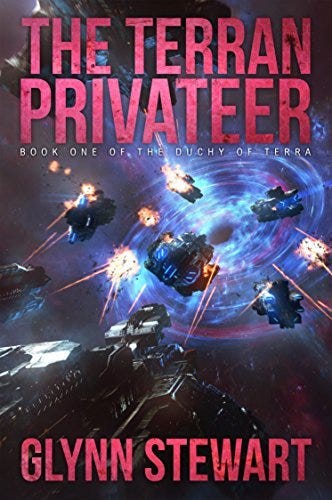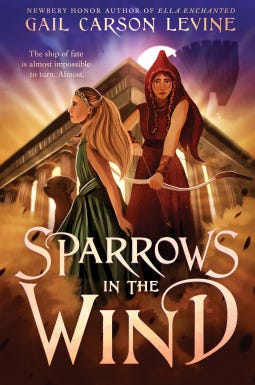In the leadup to Christmas, I'm posting here some super-short reviews of some novels I've read over the last few months but haven't mentioned yet.
Good Masters, Sweet Ladies, by Laura Amy Schlitz
As I mentioned in my recent post on children's books, Schlitz is one recent middle-grade fantasy author I've really enjoyed. After reading and liking a second book of hers, I decided to read through everything she's written. This title's a series of short skits and soliloques for a children's theater, set in a medieval English town. I didn't expect to like this, but I loved it. Their personalities and feelings come through in very engaging ways, and despite how most characters are giving separate soliloques, they do interact - you can see multiple children's perspectives on each other and even multiple accounts of the same incident.
The Night Fairy, by Laura Amy Schlitz
This's a kids' book. I mean, it's even more of a kid's book than the middle-grade novels I've been reading by Schlitz. And, it's a fun kids' book, with a fair storyline; when my sister and I were single-digit ages, I think we would've both liked it.
A young night-fairy with ruined wings carves out a life for herself in a forest, making friends and avoiding enemies among the nearby animals, recruiting a squirrel to ride among the trees. She has a few magic spells, but largely it's a story of a miniature person among talking animals. It would fit right in among the animal-focused stories my sister loved at age eight.
Terran Privateer, by Glynn Stewart
The premise sounded like a very fun sci-fi adventure: after Earth is invaded and conquered by aliens, humanity's one brand-new hyperdrive-capable warship goes privateer in hopes of somehow building up enough resources to liberate Earth. And it could have been that fun.
Unfortunately, the execution fails on multiple grounds. Firstly, none of the characters are well-developed; they're all two-dimensional at best. Secondly, the invading alien empire is developed in mostly-contradictory ways. They act so reasonably (both regarding the privateer and regarding the few scenes back on Earth) that I find it hard to believe they invaded Earth without even an attempt at peaceful negotiation. We never hear anyone raise this incongruity in the book, but it stood out in my mind the moment I tried to piece together their character. The deal they offer the protagonist at the end feels like it comes out of nowhere; why couldn't they have offered it to Earth's government at the beginning? I don't understand what changed.
There're two more books in the series, but I'm not continuing. I'd rather mourn what could have been and plot out in my mind how it could have been.
Parasite, by Mira Grant
This disappointing near-future sci-fi book appears to be the leadup to a zombie apocalypse. The sci-fi premise could be interesting: a corporation markets genetically-modified tapeworms to have in your stomach to treat medical issues and keep your immune system from being overactive. Unfortunately, they can move to people's central nervous system and... well, it looks like there's going to be a zombie apocalypse. Unfortunately, on top of this, the corporation's dishonesty and hiding data (even from the FDA!) makes it difficult to suspend disbelief.
And on top of this, the characters don't engage me, in part because they hardly do anything. Our protagonist has my sympathy thanks to her trying to rebuild her life after amnesia, but none of the characters - even Protagonist herself - really hold my interest. They're trying to get through life and satisfy their curiosity, but till the end they aren't trying to accomplish anything.
Finally, the spoileriffic reveal at the end about our protagonist's amnesia didn't surprise me at all; it'd only been telegraphed in several different ways for half the book.
I'm not going on to the other two books in the trilogy.
Sparrows in the Wind, by Gail Carson Levine
Gail Carson Levine is another middle-grade fantasy author. I encountered her books as a kid, and enjoyed them a lot. Until recently, she also had a very good blog about writing techniques, which encouraged me as I was a teenager trying to write a novel.
In her latest book, Levine has moved almost into YA: she's written a tale of the Trojan War, from Cassandra's point of view. She handles the mature themes well in the background - and I say "mature" in a very genuine sense. Personal agency is set against the gods (who are portrayed even more overbearingly than is inherent in the concept), against social expectations (Cassandra shares the narration with an Amazon princess who is quite nonplussed at Trojan society), and against fate itself (thanks to Cassandra's curse that no one will believe her prophecies). All this is done very well.
However, her characterization hasn't quite aged up in step with the themes here. These mature themes, and incidents like the gore of battle or Apollo's would-be assignation with our narrator Cassandra, are juxtaposed with Cassandra's internal narration in a tone which would be quite at home in any of Levine's other works for younger children. You could use this to make a point about Cassandra's inexperience and shelteredness, but I don't think it was intentional.
That said, I still liked this book. The quiet well-told themes make it worth reading if you like mythological retellings.







